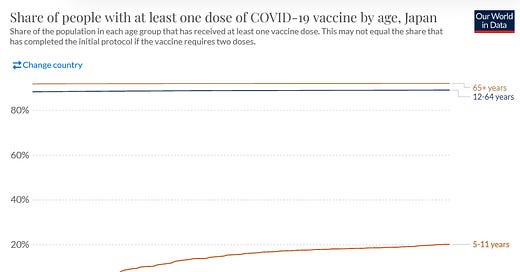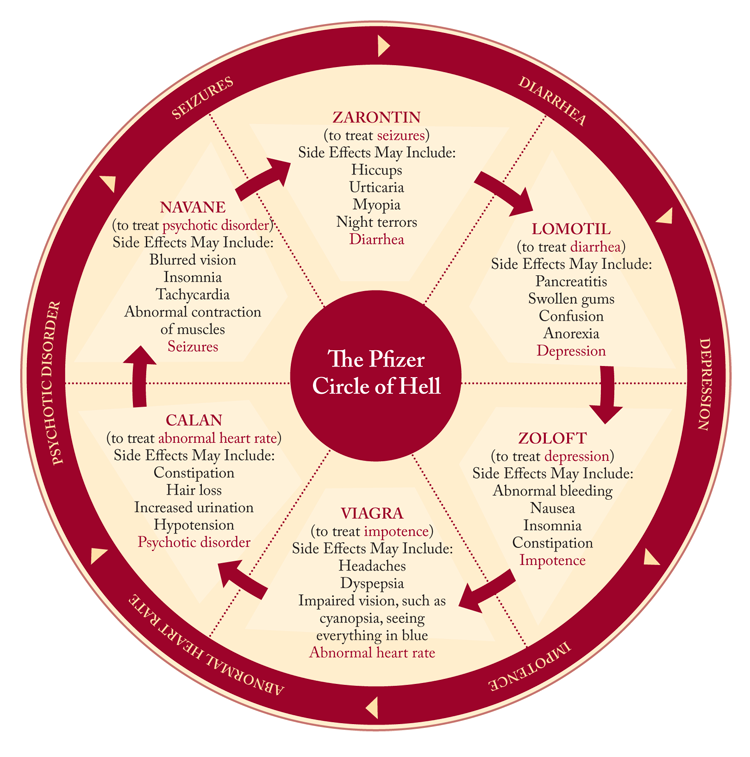Last week, I wrote about Japan’s strange move to strengthen its recommendation for parents to inject dangerous substances into their 5-11 year old children to slightly reduce their chance of getting the sniffles for three months (and increase it after four).
I have a hunch as to why Pfizer’s Tokyo sales office (AKA, the government of Japan) has decided to do this. The Ministry of Health, Labour, and Welfare (MHLW) ordered 12 million doses of Pfizers vaccine for Japan’s 7.4 million 5-11 year olds with deliveries starting in February.
In April, the MHLW also extended the expiry dates for the 5-11 jabs from 6 or 9 months to 12 months in April. This means two lots that initially had April 30/May 31 expiry dates can be used until October 31/November 30.
And two lots that had August 31/September 30 expiry dates can be used until November 30/December 31.
But these extensions are based on the jabs being correctly stored in ultra-low temperature freezers, which aren’t cheap to buy, use, and maintain.
Adding to the storage cost, the MHLW advises that the 5-11 vials be stored separately from the over-12 ones to avoid any mix ups because they’re administered differently. For examples of what can go wrong when the pediatric jabs are administered wrongly, see the below post by Jessica Rose. Warning: after reading it, you may have a hard time trusting medical personnel with anything ever again. It’s probably the only thing I’ve read in which the vaccine manufacturers and regulatory agencies look relatively competent and responsible.
So exactly how many of the 5-11 jabs have been given so far? According to the Prime Minister’s Office, 2,900,564 as of writing: 1,525,525 kids (20.6%) have had one dose; 1,375,039 (18.6%) have had two doses.
In case any readers can’t count, 12 million - 2.9 million = 9.1 million (75.84%). And parents who trust the government and media enough to get their 5-11 year olds jabbed mostly did so in March-May. Since then, demand has been minimal.
So Japan still has 9.1 million pediatric jabs with expiry dates as early as October and little sign of any demand for them from 80% of the target market. If more demand isn’t generated, most of the remaining doses will have to be discarded, meaning pharma-friendly MHLW officials and pharma-funded politicians will have difficulty justifying more taxpayers’ money being given to Pfizer for further 5-11 jabs. And neither the Japanese government nor Pfizer wants that to happen. Does the decision to strengthen the recommendation make a bit more sense now?
But Pfizer needn’t worry too much. It still has many loyal customers among Japanese over 60, of whom 16,875,061 have already had their fourth jab: 39.1% of all over 60s and and 58.6% of those eligible (5 months past dose 3).
But like drug dealers who hang about outside school gates, Pfizer knows that future profits can be better secured by getting repeat customers when they’re young. And when a product’s effectiveness turns negative after a few months, that just means the customers will have to come back for more.
And if a customer suffers a nasty side-effect, don’t worry: Pfizer will probably have something for it. And if that has a nasty side-effect, Pfizer will probably something for that too. And if that has a nasty side-effect…I think you the get the picture. It’s the law of supply and demand and supply in action.















We have to change tack and remind people of this basic principle: "your life/life of your child; your responsibility; your choice".
And we need a critical mass to stand strong and resist.
Getting "them" to change their policies is futile as their intentions are clear.
Depressing to consider but probably true.